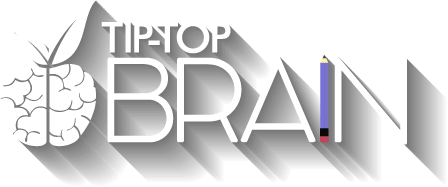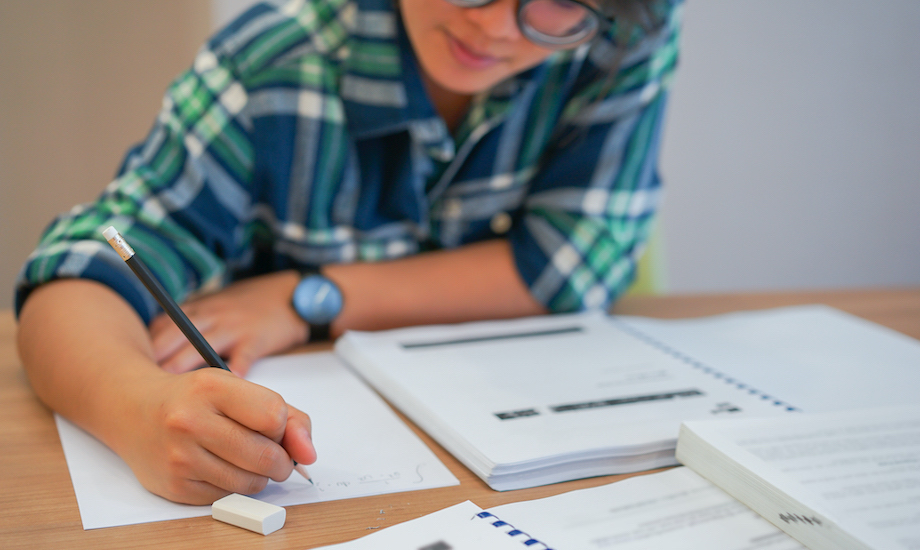Math tests, for many students, can generate a lot of anxiety. Despite how stressful exam days are, there are a few foolproof strategies for boosting your exam scores and taking some of the edge off. Better yet, by implementing any one of these tools, you’ll be further developing your testing skills, and more broadly, your math skills.
1. Write out everything
Often, teachers ask that work is shown on math assignments, tests, and homework alike. Without fail, this instruction is followed with reluctant groans from students. However, writing out your work is not merely for the teacher’s sake.
First and foremost, writing out your work in a clear and organized fashion increases readability. There’s nothing more frustrating than not being able to read your jumbled-up work during a timed exam. Leaving more white space, and writing large and legibly, will make reading and revising your work easier, and faster.
On a slightly different note, expanding and organizing your math work forces you to logically and procedurally organize your ideas. The mere process of creating and displaying well-developed mathematical ideas will help you more formally recognize the purpose and utility of each step. Moreover, you’ll also become more familiar with the sequence of work required by each problem. When working through complex math problems, recognition of the sequence and procedure will help to commit the steps to memory.
2. Do what you don’t know
Take a minute to write down what problems you most fear seeing on your next math exam. Doing this exercise leading up to each exam is the best way to locate areas you lack crucial confidence in, or ideas you simply may need to study more. Studying mathematics, as fun as it may be, takes quite a bit longer in practice than in theory, so tackling your weaknesses early on will serve you best come exam day. Confidence is a major factor of student motivation, so by conquering the topics you fear most first, you’ll experience a boost in motivation that can propel you through the rest of your work.
3. Practice, practice, practice
Math is truly in a field of its own when it comes to studying techniques. Whereas with history or science, you might be using flashcards or doing critical reading, in mathematics, practice problems will be your best friend. Luckily, there is never any shortage of practice problems. It’s advantageous to recycle homework assignments and quiz questions into a practice test for yourself. The bonus of using old assignments is you also have the correct answer nearby when it’s time to “grade yourself.” However, if you’re studying tenaciously (the best sort of studying), you may need to up-cycle your old problems. With little numerical substitutions or crafty algebraic manipulations, you can change the look and feel of problems altogether, while maintaining rigorous practice. Tutors or teachers can often help you create practice tests or problems. Alternatively, learning centers like Tip Top Brain offer numerous programs for students looking to hone their mathematics skills, and instructors can ensure students always have “fresh” practice problems and solutions available.
4. Breathe, and Pace Yourself
It’s much easier to lose a bunch of points making rushed mistakes than to earn them rushing through exams. During an exam, it’s easy for nervousness to take the wheel. Don’t forget to breathe. Work carefully and diligently, the victory of a complete solution could be tainted by a missing negative or a small algebraic error.
5. Change your view
We all find our paths into mathematics. In my experience, most students ushered into honors math classes show a preference towards algebraic representations of ideas. Unfortunately, many students aren’t exposed to the geometric and tabulated visualizations of the problems they do. Sometimes, a shift in the means of representing the problem can mean the difference between complete confusion, and crystal clarity.
Not only can finding your math language make learning new ideas easier, but it’ll also make retaining them much easier. Come test day, you’ll understand competencies you have to demonstrate more intuitively.
5. Find a student
We’ve all heard the proverb “You give a poor man a fish and you feed him for a day. You teach him to fish and you give him an occupation that will feed him for a lifetime.” I pose that by teaching the man to fish, the teacher better understands fishing. If you need some math practice, study with a friend. By working through practice problems together, or explaining homework solutions to them, you’ll increase your understanding of the content tenfold. Teaching an idea forces us to interact with it in a completely new way. This shift in perspective forces us to answer questions like “Why?” and “How?” for our students, and the insight we gain is immeasurable. In the most selfish way possible, offer to help your friend. If you’re unsure where you might meet a new study buddy, make it part of your back to school plan and invite them to Zoom-recess or lunch. Other students will be thrilled to have a classmate to do math alongside!
There is no single set of practice questions or test prep method that’ll solve all your math problems. All of us require exposure to different modes of thinking, new problems, and new ideas. Chances are, your path to the top in math will be a wonderful mixture of study groups and hard problems, but you’re sure to get there if you keep your mind open to how you’ll get there.







